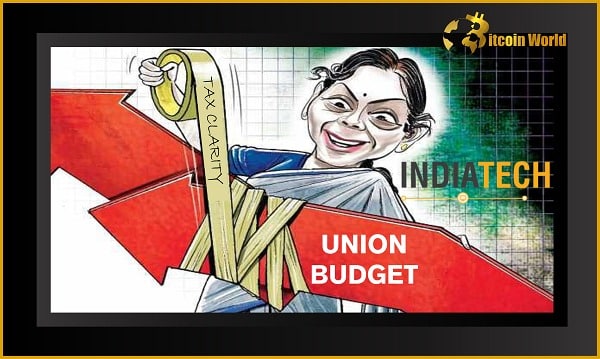The Indian cryptocurrency landscape is buzzing with discussions around taxation. Indiatech, representing major exchanges like Coinswitch Kuber, Wazirx, and Coindcx, has reached out to Finance Minister Nirmala Sitharaman seeking clarity on crypto taxation in the upcoming Union Budget 2022-23. What does this mean for Indian crypto traders and the future of crypto in India?
Indiatech’s Plea for Clear Crypto Tax Rules
Indiatech’s primary concern is the lack of clear guidelines regarding direct taxation and the Goods and Services Tax (GST) applicability on crypto assets. Rameesh Kailasam, president and CEO of Indiatech, emphasized the need for coherent rules to avoid confusion among investors and exchanges.
Key Requests from Indiatech:
- Clarification on crypto taxes in the Union Budget 2022-23.
- Amendment of current tax legislation to specifically cover crypto assets.
- Recognition of cryptocurrencies as digital assets rather than currency.
- Imposition of a flat 18% GST on exchange commissions.
GST Evasion Concerns and Investigations
Recent investigations by the Directorate General of Goods and Services Tax Intelligence (DGGI) have revealed significant GST evasion by several crypto exchanges. These investigations suggest a lack of understanding of existing tax regulations among crypto businesses, leading to unintentional non-compliance.
Key Findings of DGGI Investigations:
- “Massive” GST avoidance by major cryptocurrency exchanges.
- Tax evasion totaling Rs 70 crore ($9.4 million) unearthed.
- Lack of understanding of tax regulations cited as a reason for non-compliance.
The Need for a Clear Regulatory Framework
Currently, India lacks a specific law governing crypto assets. The government is reportedly working on a new cryptocurrency bill, but its details and timeline for implementation remain uncertain. A clear regulatory framework is crucial for fostering innovation, protecting investors, and ensuring responsible growth of the crypto industry in India.
What Does This Mean for Indian Crypto Traders?
The ongoing discussions and potential regulatory changes have significant implications for Indian crypto traders:
- Increased Tax Compliance: Clearer tax rules will likely lead to increased tax compliance among crypto investors and exchanges.
- Potential Tax Burden: Depending on the final regulations, crypto traders may face new or revised tax obligations.
- Market Stability: A well-defined regulatory framework can bring more stability and confidence to the Indian crypto market.

Related Posts – Ex-SEC Chair, Jay Clayton Believes Cryptocurrency Industry Is For Long Haul
In Conclusion: The future of crypto taxation in India hangs in the balance. Indiatech’s efforts to engage with the government highlight the industry’s commitment to compliance and responsible growth. As the regulatory landscape evolves, it’s crucial for Indian crypto traders to stay informed and adapt to the changing rules of the game.
Disclaimer: The information provided is not trading advice, Bitcoinworld.co.in holds no liability for any investments made based on the information provided on this page. We strongly recommend independent research and/or consultation with a qualified professional before making any investment decisions.


